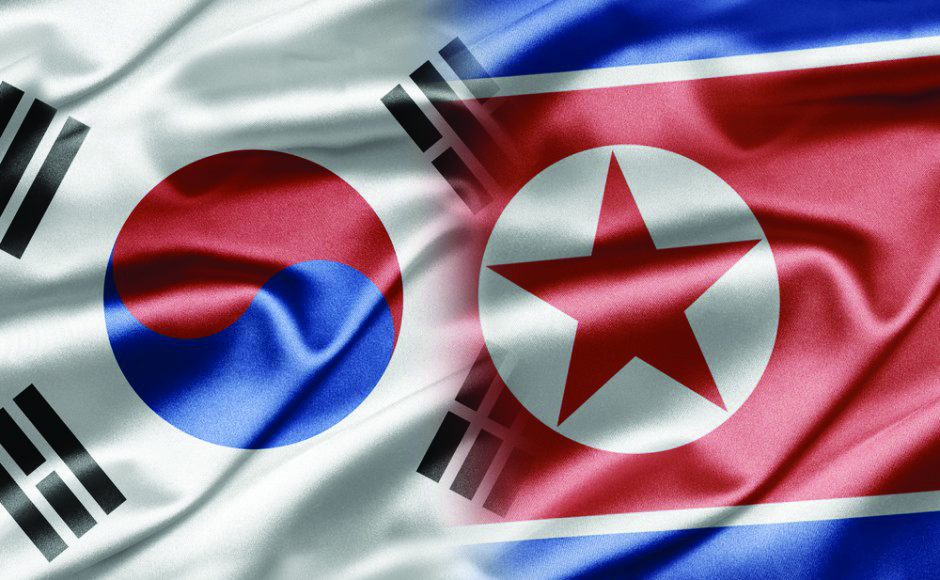Divided North and South Korea Unite for 2018 Winter Olympic Games
The 2018 Winter Olympic Games begin in just a few weeks, and in a surprising act of reconciliation, North and South Korean athletes are set to march together at the opening ceremonies.
It is the first indication of any compromise between the two countries in nearly a decade, and represents a major step forward in an attempt to ease tensions between the two countries amidst rising concerns about North Korea’s nuclear missile tests.
The athletes will also march under one flag consisting of a blue, undivided outline of the Korean peninsula against a white background. Though few believe this will lead to a breakthrough in relations between the two countries, the decision to march together in the opening ceremonies under one flag is encouraging for promoters of peace in the region. A unified march is just one of several collaborative agreements negotiated last week in Panmunjom, North Korea, a small village that is part of the Korean Demilitarized Zone.
Representatives from the two countries also agreed to organize joint ski training sessions at Masikryong Mountain, a state-run North Korean ski resort built to “make people not only possess strong physiques and sound mentality, but also enjoy their sports and cultural lives in a world’s advanced condition.” North Korea will also be sending 230 native supporters to Pyeongchang to cheer on their fellow competitors.
Yet perhaps the most striking decision to come out of last week’s dialogue is the agreement to form a mixed North and South Korean women’s ice hockey team. The longtime political hostility between the two countries has, in years past, translated into an athletic rivalry in events such as table tennis, judo, and soccer. When North Korea lost 1-0 to South Korea in a soccer match at the 2014 Asian Games, the result of the match was never released to the North Korean public out of fear of humiliation.
Now it’s different. Though North Korea is ranked 22 internationally and is a clear underdog compared to ice hockey giants like Canada, the United States, and Sweden, 12 women’s ice hockey roster spots will be reserved for them. The North-South Korean women’s hockey dream team will be the first ever unified Korean team to participate in the Olympic games.
While such negotiations have been heavily praised by key UN figures such as Secretary General António Guterres and General Assembly President Miroslav Lajcak, other countries have also expressed their persisting caution in regard to North Korea. At a January 16 summit held in Vancouver involving the United States, Japan, Canada, and the United Kingdom, U.S. Secretary of State Rex Tillerson and Japanese Foreign Minister Taro Kono expressed concern over the possibility that North Korea may have agreed to such negotiations in order to ease foreign pressures so that they may continue progress on their nuclear program.
The Olympic opening ceremonies are set to light off in Pyeongchang on February 9. While expectations for further relations remain low amongst international statespersons, the plans for North-South Korean collaboration during the winter games have created optimism and diplomatic prospects while demonstrating the potential for sports and tradition to impact foreign affairs.



